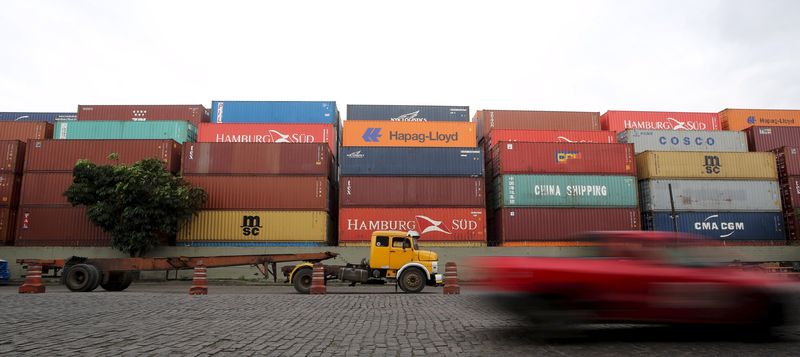By Jonathan Saul
LONDON (Reuters) - Carbon emissions from shipping rose in the six-year period to 2018 and accounted for 2.89% of the world’s CO2, a study released on Tuesday showed, amid growing pressure on the industry to bring levels down.
About 90% of world trade is transported by sea and UN shipping agency - the IMO - aims to reduce the industry’s overall greenhouse gas emissions by 50% from 2008 levels by 2050.
The report - the fourth in a series commissioned by the IMO - said shipping's share of global CO2 emissions increased to 2.89% in 2018 from 2.76% in 2012, when the last study period ended.
CO2 emissions grew to 1,056 million tonnes in 2018 versus 962 million tonnes in 2012, the study showed.
The report said emissions in 2020 and 2021 would be significantly lower due to the impact of COVID-19 and that emissions over the next decades may be a few percent lower than projected depending on the recovery trajectory.
Tristan Smith, with advisory group UMAS which includes University College London, said the report showed that reductions in carbon intensity had already been achieved.
"The report is positive towards the likelihood of achieving decarbonisation, as long as IMO and national governments now take strong policy action to help incentivise this."
The non-profit International Council on Clean Transportation (ICCT) said the growth of shipping was outpacing efficiency improvements and by 2050 emissions from the industry were projected to be up to 130% higher than 2008 levels.
"It’s notable that improvements in fuel efficiency have slowed since 2015, with annual improvements of only 1% to 2%,” ICCT’s marine program director Dan Rutherford said.
"Policies are needed to accelerate innovative fuel-efficiency technologies like wind-assist and hull air lubrication, along with new, low-emission and zero-emission fuels."
The IMO said its Marine Environment Protection Committee would consider the study when it next meets.
